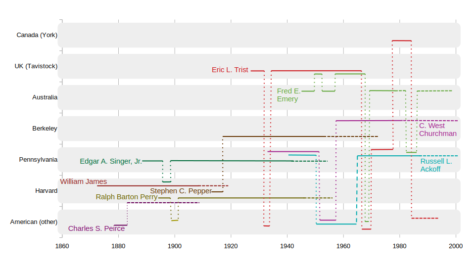Having reached year 6 of an espoused 10-year journey, the Systems Changes Learning Circle is (again) convening monthly Dialogues on Social Innovation at the Centre for Social Innovation in Toronto.
Starting up in 2019, the Circle was convening regularly in the Climate Ventures space at 192 Spadina Avenue. The pandemic interrupted in-person meetings, and the core group continued philoosophical and theoretical development.
A return to normalcy encourages the Circle to serve as mentors on thinking through systems echanges.
As an introduction, an online Lunch and Learn was scheduled. Dialogues can be free-flowing, with a light guidance along three questions:
- 1. Which differences make a difference in your social innovation? Which rhythms are normal, and which are shifts?
- 2. What influences advance or block the rhythmic shifts of your social innovation?
- 3. Where can the pacing of systems changes, as faster or slower, favour your social innovation?
To better describe these questions, very short (5-minute) presentations were provided as orientation.
| A. Welcome | :05 | |
| B. Rhythms: Normal or Shift? | Presentation One | :05 |
| Dialogue One | :10 | |
| C. Influences: Advancing or Bocking? | Presentation Two | :05 |
| Dialogue Two | :10 | |
| D.Pacing that favours: Faster or Slower? | Presentation Three | :05 |
| Dialogue Three | :10 | |
| E. Next Meeting (poll) Better Questions? |
:10 |
With only an hour scheduled for the Lunch and Learn session, participants only got a brief taste of the way a dialogue would run.
Brief animations served as metaphors on which dialogues could be built. Oriented towards an audience of practitioners, the presentation defers more rigourous theoretical explanations into later mentoring.… Read more (in a new tab)



